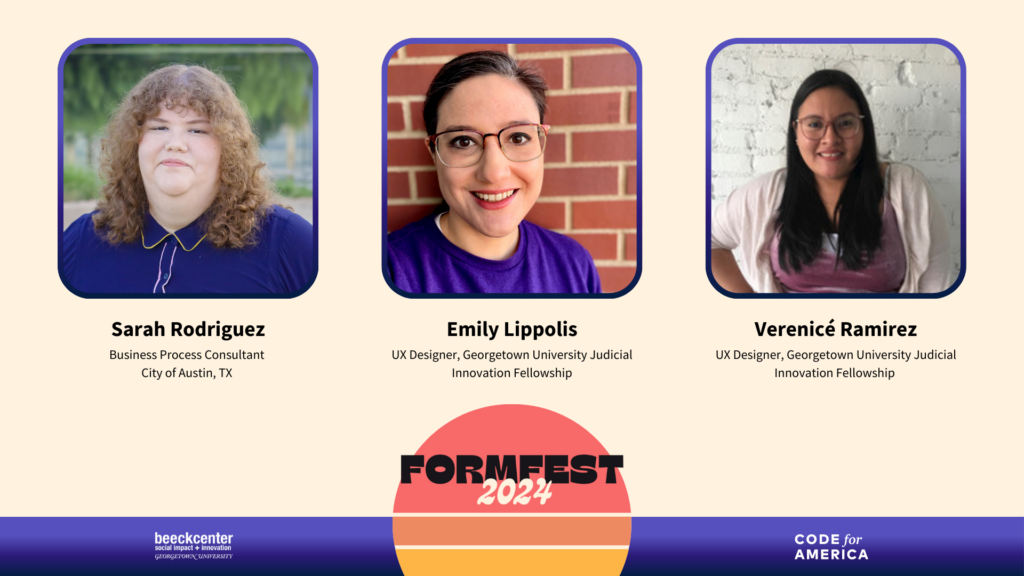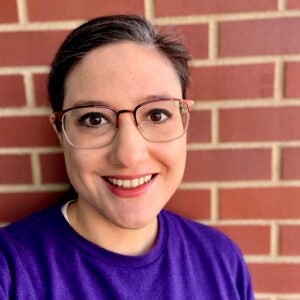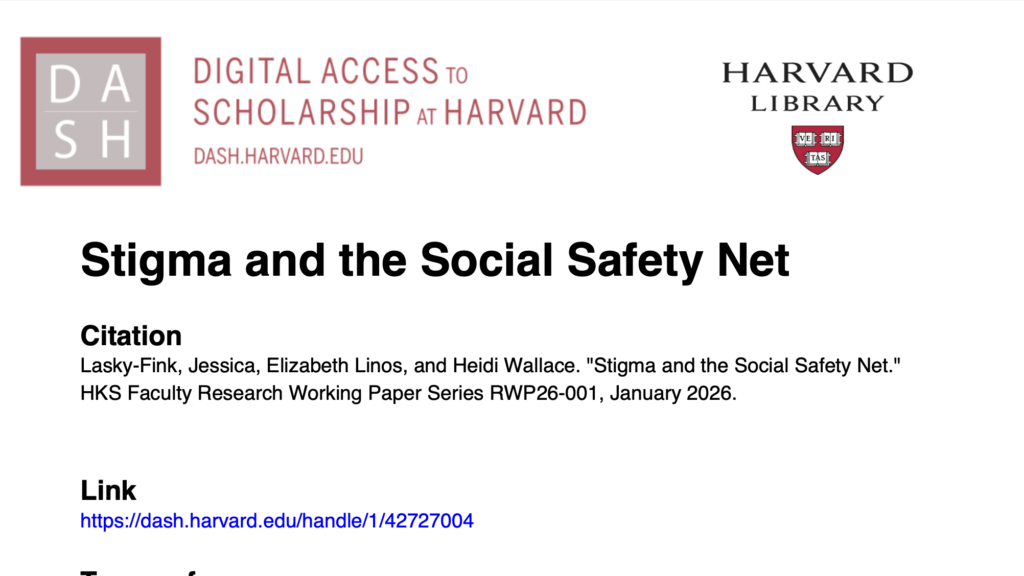Less Jargon, More Compassion: A FormFest 2024 Profile
FormFest profiles feature stories about FormFest 2024 speakers, including their motivations for working on public sector form innovation. After the event, FormFest profiles will include the video from the event.

Sarah Rodriguez, Emily Lippolis, Verenicé Ramirez — Less jargon, more compassion
If you’re in court, you’re probably not having a great time — and in some cases, it may be the worst time of your life. The legal system is not designed to accommodate (or even acknowledge) those difficulties. But it could be. Using trauma-informed methodology, Sarah Rodriguez, Emily Lippolis, and Verenicé Ramirez are creating a more empathetic court experience, deploying digital and human-centered practices to simplify forms and processes in hopes of lessening the emotional burden.
This compassionate approach isn’t just “a nice thing to do,” Emily explained. “It results in users providing more accurate and complete information on their forms, which leads to fewer mistakes and less rescheduling because of errors, which, in turn, saves courts time and money.”

Sarah Rodriguez — A throughline of community
When Sarah Rodriguez was tapped to lead a mobile court program for the Downtown Austin Community Court, one of the first things she tackled was an intake form. The court was designed to remove barriers for people who have trouble accessing legal services through traditional means due to mobility issues, a lack of transportation, homelessness, or a general fear of the criminal justice system. The standard paper intake form, filled with questions about immigration status, marital status, and past citations, did not make sense for that population. In fact, some of the questions didn’t make sense in any scenario.
Take marital status—during a content review exercise, one of our advisory committee members pointed out that she’d been divorced for 20 years and considered herself single, but didn’t know which box to check for her marital status,” Sarah said. That was a data point we could remove entirely.”
Other considerations: The potential for harm in data collection (i.e., is it worth asking about immigration status if that information can be used punitively?), along with the general limitations of human memory.
“If I got a ticket 10 years ago, it’s not like I’m going to remember that,” Sarah said. “We don’t want to penalize folks for not having that sort of memory, so we’ve also created spaces to say, ‘I’m not sure,’ or, ‘This is an approximate.’”
The focus on simplified paperwork and digitized processes is somewhat ironic for Sarah, who had originally intended to be an archivist. Her interests shifted after college, when she graduated with a degree in Scandinavian-area studies (she liked the Icelandic sagas), discovered a fascination with the built environment, and went back to school for a master’s in planning with an emphasis on historical housing and preservation. Which is not, actually, all that unrelated to what she does now.
“The throughline is sort of a meaning-making,” she said. “It’s how we build culture and community. There’s the written word, but also the policy choices we make for things like housing, transportation, and food.”

Emily Lippolis — The butterfly effect
As a Judicial Innovation Fellow for the Justice Lab at Georgetown Law Center’s Institute for Technology Law and Policy, Emily Lippolis was dispatched to Kansas to design an electronic portal to guide self-represented litigants through the maze of required filing paperwork. But once the project was underway, Emily and her court partner opted to narrow the scope of the work, focusing solely on litigants in small claims court. The decision made sense from a practical perspective—small claims was a relatively low-risk place to test a prototype, and it would allow litigants to file electronically in a space where lawyers are typically prohibited—but it also offered a level of protection for Emily personally.
“Looking out for my mental health and taking a trauma-informed approach to the user research meant I did not think I could handle the emotional heaviness of other kinds of claims as a UX team of one person, nor did I think it was necessary to ask user testers to relive their trauma to complete the work,” she said.
Still, she did encounter trauma. The court system as a whole was not built to accommodate most people—generally, it caters to the needs of lawyers and wealthy litigants, most of them male—and most policy decisions are made by attorneys, not advocates. Even in law school, there’s little mention of the fact that most people who interact with the civil court system do not have legal representation. Implementing changes within that space—even small ones—is a challenge, but those tiny design shifts can have powerful impacts.
Emily first understood that at the age of 14, when one Florida county’s decision to use a poorly designed butterfly ballot left the outcome of a presidential election in the hands of the U.S. Supreme Court.
“I don’t know if the butterfly ballot’s legacy is the ‘butterfly effect’ Ray Bradbury imagined,” Emily said. “But it’s the one that has stuck with me.”
FormFest Session Abstract & Details
Local Government Form Improvements
Breakout Session | December 4, 2024 | 12:50-1:50 PMET
This session features the work in Austin, Texas on criminal justice forms, and the South Bend, Indiana Animal Resource Center’s efforts to redevelop their animal adoption forms.
Creating equitable and accessible legal forms to address the justice gap
Sarah Rodriguez, Emily Lippolis, Verenicé Ramirez
Every year in the US, 55 million people face legal issues, but nearly half report unfair resolutions. Due to high legal costs, many individuals end up self-representing in a system designed for those with legal training. This complexity, combined with legal jargon, puts vulnerable individuals at risk of incarceration, homelessness, and health crises. To address this, courts are using digital and human-centered practices to modernize their processes. This panel will feature designers from state and local courts who, using trauma-informed methods, aim to reduce administrative burdens and improve accessibility for all.
FormFest 2024
FormFest is a free virtual event showcasing governments working to make services accessible to everyone through online forms. Discover best practices and tools that are shaping the future of form design and service delivery.


